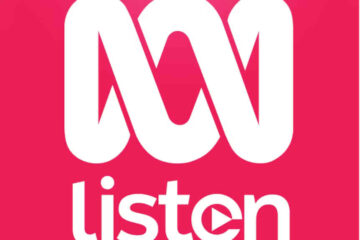CNN’s Michael Holmes speaks to former negotiator Gershon Baskin about talks over a possible ceasefire and hostage release deal between Israel and Hamas
HOLMES: For more on all of this, I’m joined now by Gershon Baskin, a former hostage negotiator and researcher on the Israeli Palestinian Conflict and Peace Process. It’s good to see you, sir.
The White House says hostage talks are going well. They say there’s word that Israel will expand the authority of its negotiators, you will form a hostage negotiator. How do you evaluate how the negotiations have been handled up until now?
GERSHON BASKIN, FORMER HOSTAGE NEGOTIATOR: Well, I think that they’ve been too slow. This should have been done months ago at the very beginning of the conflict should have been the major effort to get the hostages home. At that time, it was quite clear that Hamas was demanding from Israel release of all the Palestinian prisoners in Israel. There was a significantly smaller number of prisoners at the beginning of the war than there are right now.
And there was no demand from Hamas at the beginning to end the war when they thought that they were actually on the road to what they called liberating Palestine.
Right now, it’s much more complicated because Hamas is demanding from Israel to end the war and withdraw from Gaza, while Hamas is still in command of the Gaza Strip, as well as releasing in exchange for hostages all the prisoners in Israel, especially those who have murdered Israelis over the year, and there are 559 of them serving life sentences, and hundreds of other Hamas fighters who have been taken out of Gaza since the beginning of the war.
HOLMES: Right. Israel has at the same time stepped up strikes on Rafah and with promise of more, and with one and a half million Palestinians still trying to survive it.
How does Israel’s offensive in Rafah and what might be ahead complicate hostage negotiations for one and to impact those Palestinians crammed into an area which is the size of Disney Land?
BASKIN: Well, it seems that an attack on Rafah at this point would be catastrophic. And yet it might be actually what is pressuring Hamas to be more flexible in its demands. This might be the opening of the crack in the wall of Hamas’ demands to enable an agreement to be reached.
What’s essential now in the three-part plan that’s been on the table since the Paris talks were held last month, is the possibility of separating phase one from phase two and phase three, which would be the indication by Israel of its willingness to end the war. If we can get a 45 day ceasefire now, that would opening up time for more calmer talks in an atmosphere that could produce a diplomatic end to the war perhaps released civilian hostages in exchange for a large number of public stinging prisoners.
But it would also lead us to a period of Ramadan, which is always very sensitive where the area would be quieter again.
HOLMES: Yes.
BASKIN: We would have less mix from the north and from Yemen and from other places in the region, East Jerusalem and the West Bank.
HOLMES: Yes. I wanted to ask you this to the notion of a two state solution has effectively been all but dead for so long now, zero momentum. And Israeli prime minister who openly says it will never happen. But yes, of course, 140 countries have already recognized Palestine. It was raised at the G20. Meeting in Brazil this week, do you still see a pastor that a Palestinian state?
BASKIN: I do. And it’s important to recognize that defeating Hamas is not only on the battlefield, but defeating Hamas is defeating the idea from us. Palestinians have to know with the international support that they have a reason to leave for Palestine. And they can stop back dying for Palestine.
This is really essential. And what I would say with regard to Netanyahu and his rejection of the idea is that it’s true, it won’t happen while he’s Prime Minister, but he won’t be Prime Minister for very much longer. He’s at the end of his political career, the Israeli public is fed up with him and holds them responsible for what happened on October 7, the lack of Israel’s ability to defend itself.
We will be going to elections at sometime in the future, probably in this year. And the next prime minister of Israel will have to deal with the reality that the solution of two states for two people is not a price for Hamas. It’s exactly what Hamas doesn’t want.
HOLMES: Yes.
BASKIN: And it’s what the region needs in order to reach peace.
HOLMES: And that would take away their reason for being. I mean, Netanyahu said, an aim of this war in his words is to deradicalize Gaza. You wrote an article in Haaretz recently and you mentioned Gaza’s Hamas leader, Yahya Sinwar and you wrote in the peace, quote, in the absence of peace, ongoing occupation and economic siege on Gaza, successive rounds of violence, especially this brutal war, 1000s of potential Sinwar’s are being created. We’re almost out of time. But can you briefly expand on that?
BASKIN: That’s right. We know for historically, the harder that Israel and Hamas without a political solution, the more Hamas’ gained strength within the Palestinian territories, in the only thing that can derail Hamas from its popularity is if we move into a genuine peace process.
And here, the United States has a crucial role to play. It’s time for the Biden administration to put its money where its mouth is and recognize the state of Palestine and lead the rest of the world to the recognition both of Israel and Palestine and to materialize the two state solution.
HOLMES: Great analysis. Thank you so much. Gershon Baskin, appreciate it.
BASKIN: Thank you.
Originally Published at
https://edition.cnn.com/videos/world/2024/02/23/exp-hostage-talks-baskin-intvw-022301aseg1-world.cnn


